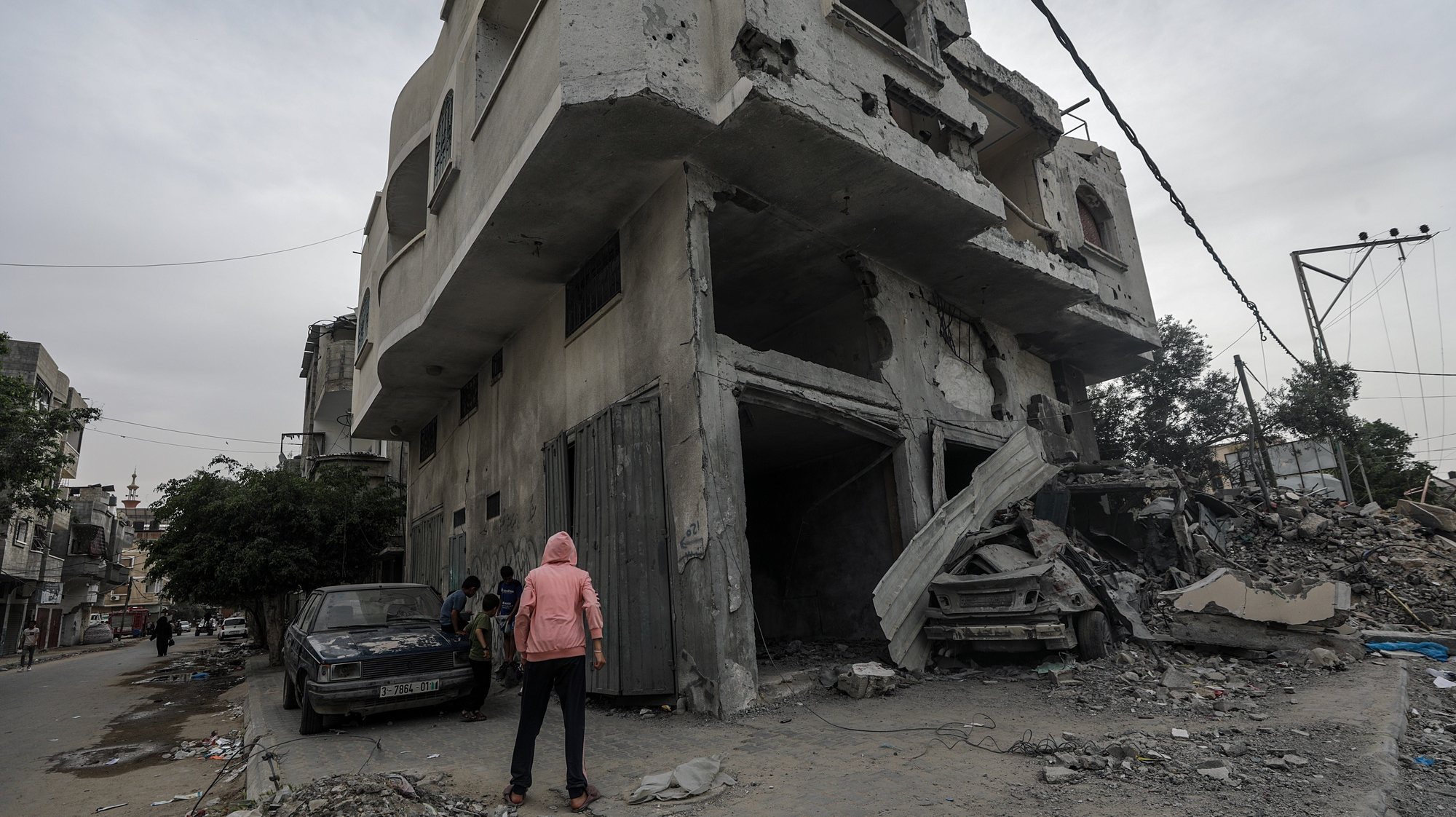The Hamas group says it accepted a ceasefire proposal, but Israel considers it a “watered down” version that does not serve Israeli interests and has continued attacking Rafah.
Follow the live blog about the war in the Middle East here
More than 200 days after the October 7 attack that sparked Israel’s war against Hamas in the Gaza Strip, and after several failed attempts to reach an agreement on a ceasefire, the extremist group Hamas, which controls that Palestinian territory , announced this Monday that it accepts the conditions proposed by the mediators (Egypt and Qatar) for an agreement with a view to a ceasefire in the Gaza Strip.
In recent weeks, Western countries described the offers made by Israel as “generous” and considered that the ball was in Hamas’s court: it would be up to the Palestinian group to decide whether or not to continue the war.
The day news began to spread about the imminence of a ground attack on Rafah (city in the south of the Gaza Strip where hundreds of thousands of people take refuge, the last bastion of the territory), while Israel issued an evacuation order for the eastern part of that city, Hamas announced that it accepted an agreement for a ceasefire .
Israel decides to continue with plans to invade Rafah despite Hamas accepting the ceasefire
The information appeared around 6 p.m. in Lisbon through a brief statement: “Brother mujahid Ismail Haniyeh, leader of the political office of the Hamas movement, held a telephone conversation with the Prime Minister of Qatar, Sheikh Mohammed bin Abdul Rahman Al Thani, and the Minister of Information of Egypt, Abbas Kamel, and informed them of the approval of the Hamas movement to its proposal for a ceasefire agreement.”
Initially there were no details about the agreement in question, but the Israeli press began to provide some information about the negotiations in recent weeks, lifting the veil on what the agreement accepted by Hamas could be.
It would be a three-phase agreement: first, a 40-day truce during which 33 Israeli hostages and hundreds of Palestinian prisoners would be freed; secondly, a new 42-day truce, for the release of the remaining hostages and hundreds of other prisoners, for the departure of Israeli forces from Gaza and for the beginning of preparations for a reconstruction plan for the Gaza Strip. Gaza that will last five years; thirdly, a final 42-day truce, with the exchange of the bodies of hostages who died in captivity and the bodies of Palestinian prisoners who died in Israel.
The details have not been confirmed, but the different sources who spoke this Monday about the agreement always mentioned the possibility of a gradual ceasefire, each of which will last about 40 days.
Although the announcement of the acceptance of an agreement was greeted with celebrations in the Gaza Strip, waters immediately boiled in Israel. Anonymously, several Israeli sources conveyed to the international press the idea that the agreement accepted by Hamas did not please Tel Aviv. An Israeli official even told Reuters that Hamas had accepted a “watered down” version of the deal proposed by Egypt. “It appears to be a ploy designed to make Israel appear as the party rejecting a deal,” the same source said.
Israel’s official response came an hour later, from Israel Defense Forces spokesman Daniel Hagari, who assured that, in operational terms, Israel would continue with the plans it has in place, despite the recent announcement that Hamas had accepted the terms of a ceasefire agreement. Benjamin Netanyahu’s war cabinet, meeting this Monday, would end up deciding unanimously to continue the operation in Rafah.
The most radical wing of the Israeli government, represented by Israel’s Security Minister Itamar Ben Gvir, an ultranationalist who has adopted radical positions in defense of a relentless war against the Palestinians, called for the continuation of the war against Hamas.
“Hamas’ exercises and games have only one response: an immediate order to occupy Rafah! Increase military pressure and continue the defeat of Hamas, until total defeat,” he said on Twitter.
Minister Benny Gantz of the Israeli War Cabinet also criticized the ceasefire proposal accepted by Hamas, calling it “inconsistent with the dialogue held with mediators to date.”
The United States reacted through State Department spokesman Matthew Miller, who confirmed that Washington is “analyzing” Hamas’s position. Miller also stressed again that the United States does not support a military operation in Rafah.
However, late in the day on Monday, the Israeli military confirmed that it was carrying out targeted strikes against some Hamas targets in eastern Rafah, strikes that the United States did not consider to constitute a “large-scale military attack.” . operation”.
Source: Observadora
